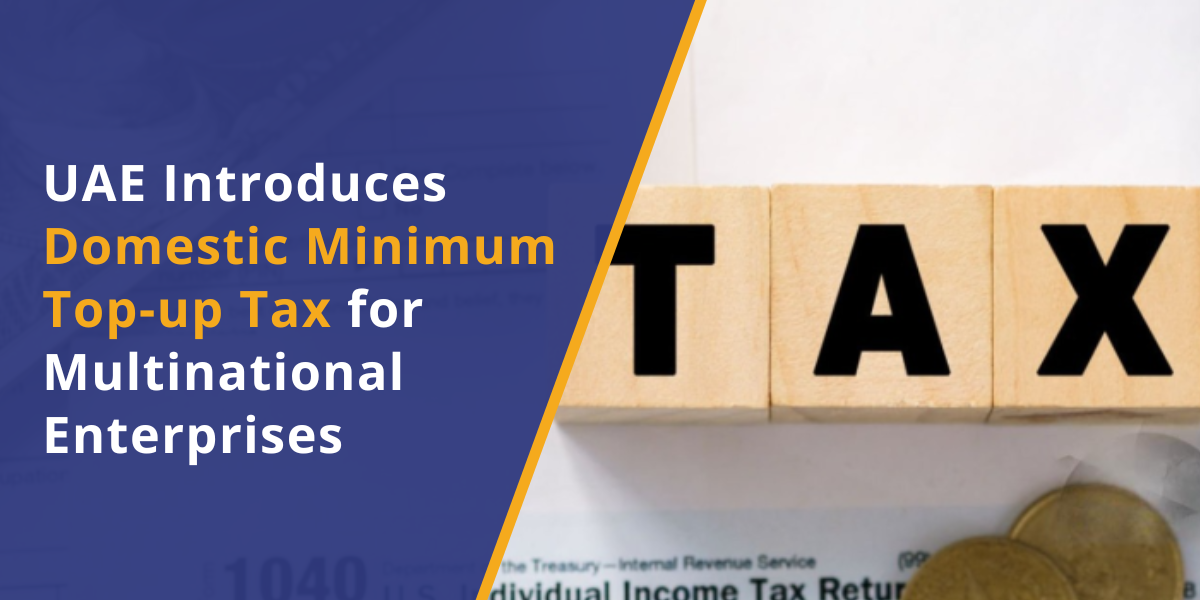
The United Arab Emirates (UAE) has announced the implementation of the Domestic Minimum Top-up Tax (DMTT) through Cabinet Decision No. 142 of 2024. This new tax framework aims to align with international tax regulations, specifically the GloBE Model Rules established by the Organisation for Economic Co-operation and Development (OECD).
The UAE Ministry of Finance disclosed details of the DMTT, clarifying its scope, exemptions, and transitional measures. The tax applies to multinational enterprises (MNEs) operating in the UAE with annual global revenues of at least €750 million ($775 million) in at least two of the four financial years preceding the tax’s implementation.
Key Provisions of the UAE DMTT
-
Scope & Applicability:
The tax is designed for MNEs that meet the revenue threshold, ensuring compliance with OECD Pillar Two guidelines on minimum taxation.
-
Substance-Based Income Exclusion:
Companies can reduce their net taxable income under the DMTT through deductions based on payroll and tangible asset values.
-
De Minimis Exclusion:
Entities meeting specific financial criteria may qualify for a zero-tax rate under the DMTT.
-
Investment Entity Exclusion:
To maintain the UAE’s competitiveness as a financial hub, investment entities, as defined by the OECD rules, are exempt from the DMTT.
-
Transitional Relief:
Newly established MNEs with no parent entity subject to a Qualified Income Inclusion Rule in another jurisdiction will not be taxed during their initial operational phase in the UAE.
Strategic Impact on the UAE’s Business Landscape
The introduction of the DMTT aligns the UAE with global tax standards while maintaining incentives to attract foreign investment. By implementing exemptions and relief measures, the UAE aims to uphold its reputation as a leading international business hub.
The UAE Ministry of Finance emphasized that the DMTT will be enforced in accordance with OECD guidance, ensuring a transparent and predictable tax environment. The full Cabinet Decision No. 142 of 2024 is available on the official UAE Legislation website
For further updates on the implementation of the DMTT and its impact on businesses, stakeholders are encouraged to monitor official communications from the UAE Ministry of Finance.
